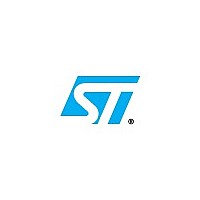ST10F273M-4T3 STMicroelectronics, ST10F273M-4T3 Datasheet - Page 140

ST10F273M-4T3
Manufacturer Part Number
ST10F273M-4T3
Description
MCU 16BIT 512K FLASH 144-LQFP
Manufacturer
STMicroelectronics
Series
ST10r
Datasheet
1.ST10F273M-4TR3.pdf
(182 pages)
Specifications of ST10F273M-4T3
Core Processor
ST10
Core Size
16-Bit
Speed
40MHz
Connectivity
ASC, CAN, EBI/EMI, I²C, SSC, UART/USART
Peripherals
POR, PWM, WDT
Number Of I /o
111
Program Memory Size
512KB (512K x 8)
Program Memory Type
FLASH
Ram Size
36K x 8
Voltage - Supply (vcc/vdd)
4.5 V ~ 5.5 V
Data Converters
A/D 24x10b
Oscillator Type
Internal
Operating Temperature
-40°C ~ 125°C
Package / Case
144-MQFP, 144-PQFP
Processor Series
ST10F27x
Core
ST10
Lead Free Status / RoHS Status
Lead free / RoHS Compliant
Eeprom Size
-
Lead Free Status / Rohs Status
Details
Available stocks
Company
Part Number
Manufacturer
Quantity
Price
Company:
Part Number:
ST10F273M-4T3
Manufacturer:
STMicroelectronics
Quantity:
10 000
Electrical characteristics
Note:
24.7.3
140/182
absolute accuracy of the A/D conversion is the deviation between the input analog value and
the output digital value. It includes the following errors:
●
●
●
●
These four error quantities are explained below using
Offset error
Offset error is the deviation between actual and ideal A/D conversion characteristics when
the digital output value changes from the minimum (zero voltage) 00 to 01
OFS).
Gain error
Gain error is the deviation between the actual and ideal A/D conversion characteristics when
the digital output value changes from the 3FEh to the maximum 3FFh once offset error is
subtracted. Gain error combined with offset error represents the so-called full-scale error
(Figure
Quantization error
Quantization error is the intrinsic error of the A/D converter and is expressed as 1/2 LSB.
Non-linearity error
Non-linearity error is the deviation between actual and the best-fitting A/D conversion
characteristics (see
●
●
Bisector characteristic is obtained drawing a line from 1/2 LSB before the first step of the
real characteristic, and 1/2 LSB after the last step again of the real characteristic.
Total unadjusted error
The total unadjusted error specifies the maximum deviation from the ideal characteristic:
The number provided in the datasheet represents the maximum error with respect to the
entire characteristic. It is a combination of the offset, gain and integral linearity errors. The
different errors may compensate each other depending on the relative sign of the offset and
gain errors. Refer to
Offset error (OFS)
Gain error (GE)
Quantization error
Non-linearity error (Differential and Integral)
Differential non-linearity error is the actual step dimension versus the ideal one
(1 LSB
Integral non-linearity error is the distance between the center of the actual step and the
center of the bisector line, in the actual characteristics. Note that for integral non-
linearity error, the effect of offset, gain and quantization errors is not included.
40, OFS + GE).
IDEAL
).
Figure
Figure
40):
40, see TUE.
Figure
40.
(Figure
ST10F273M
40, see














